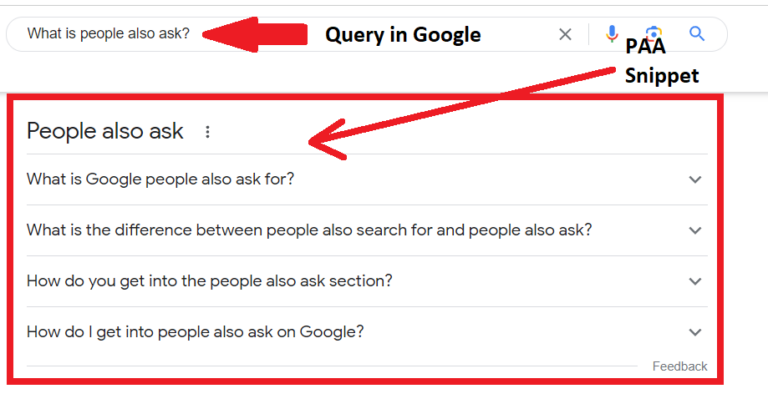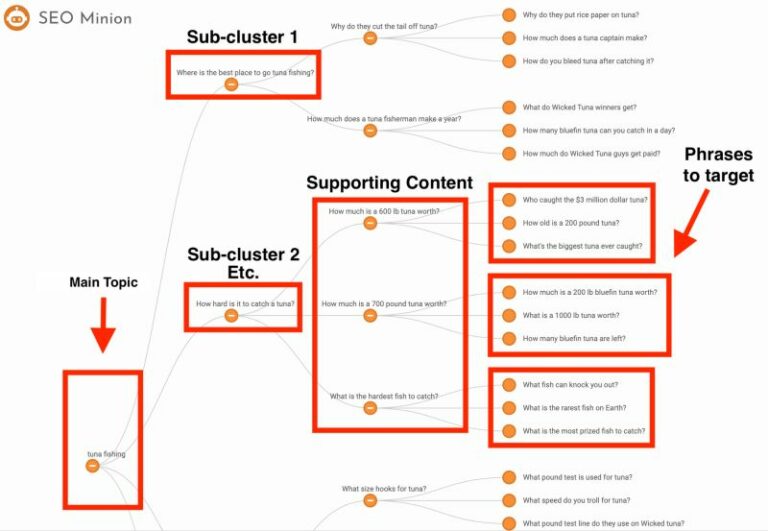How to Easily Cluster People Also Asked Keywords
One of the most effective ways of capturing search demand from long-tail queries (in almost any SEO strategy) is through the smart use of People Also Asked data. A problem that often emerges with long questions or sentences, however, is the ability to effectively cluster them in a way that is semantically relevant.
I’ve previously posted about this once on LinkedIn, explaining how to overcome this issue, and the post got reshared 147 times, gained over 1,200 engagements and 189 comments. So I’ve decided to write a blog post about it.
What is people also asked?
People Also Ask, often shortened as PAA, is a feature provided by Google on its search results page. When you search for a term, Google tries to predict other related questions that you might have, and it provides these in a “People Also Ask” section. These are often displayed in a box format in the search results and contain both the questions and their short answers.
Here’s an example of how the PAA Box may look like:

Now that definitions are out of the way… What if I told you that you could scrape these PAA automatically and get them clustered in a ordered hierarchy?
Enter SEO Minion, a FREE handy tool to automate this process for you.
(Update: as of June 2023, SEO Minion is no longer free. However, you can achieve the same results with other FREE tools such as Search Response, or ad hoc Chrome Bookmarklets.)
Stop Guessing PAA Keyword Clusters
As already established, we will be using a Chrome extension called SEO Minion to perform our PAA clustering task. Harnessing the power of SEO Minion is easy.
How to Get Semantically Relevant Topics for Free:
First, install the free Chrome extension.

Secondly, Google your topic of choice. In this case, we’ll use “tuna fishing” as an example. SEO Minion will automatically inject a snippet directly into your SERP.
You can use this snippet to scrape fresh PAA data directly from Google. An orange button will appear, prompting you to “View PAA Tree”. Below is how the tree would look like:

That was easy! You now have a detailed map of topics, subtopics, and supporting PAA data that Google wants you to cover.
Making the Most Your New Keyword Map
Understanding your PAA Tree is key to leveraging its full potential. The main topic, in this case, “tuna fishing,” acts as the central pillar, with subtopics and supporting phrases branching out from it.
For example, “how hard is it to catch tuna” could be its own piece of content, linking back to the main “tuna fishing” pillar. Other supporting phrases like “how much is 600 lb of tuna worth” feed into the hierarchical sub-cluster located one level above.
As you delve deeper into the map, you’ll discover more granular phrases and wording that can be incorporated into your supporting content.
Tweaking Your Keyword Clusters
Of course, while SEO Minion provides an excellent starting point, you may need to make some manual tweaks and changes to fit your unique content strategy. The beauty of this tool is that it’s adaptable, allowing you to tailor your keyword clusters to align perfectly with your needs.
Leveraging Your New Content Ideas at Scale:
With your PAA keyword cluster(s) in place, you can now start creating content that is not only topically authoritative but also hyper-relevant to your audience. Hire a team of freelance writers & editors and let them work with your thorough map, producing tons of engaging content like there’s no tomorrow.
The benefits of using SEO Minion for keyword clustering are clear: it saves you time, increases efficiency, and helps you create more relevant, authoritative content. So why continue guessing when you could have this powerful tool at your disposal?
Bonus Tip from Nico: Expanding the Mapped Content
To further enhance your clusters, consider including your own keyword research, volumes, and categories. This will add more depth to your clusters, ensuring they resonate with your niche or site. It’s the cherry on top of an already efficient and powerful tactic.
So there you have it… A step-by-step guide to efficient PAA keyword clustering with SEO Minion. It’s time to stop guessing and start creating targeted content that will resonate with your audience and rank high.
Now there’s only one thing left to do: get out there and do the work!
Happy PAA clustering!
 Nico Bortoluzzi
Nico Bortoluzzi
Hi, I'm Nicholas Bortoluzzi (but people often call me Nico).
I am the Founder and Director at SEO Lynx, an internet marketing agency operating in the UK and servicing clients worldwide.
The article on this page was written and curated by myself.

Hi, I’m Nicholas Bortoluzzi (but people often call me Nico).
I am the Founder and Director at SEO Lynx, an internet marketing agency operating in the UK and servicing clients worldwide.
The article on this page was written and curated by myself.